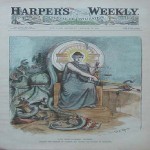For Finance Industry, a Possible Alternative to the Deregulation-Bust-Bailout-Reregulation Cycle
No one wants a replay of the financial meltdown of the past couple years, but can new regulations really provide a long-term solution? Periods of heightened regulatory oversight seem inevitably followed by periods of deregulation, while the prospect of government bailouts may create a moral hazard that promotes excessive risk-taking. Thus, in an interesting new article on SSRN, Shelley Smith suggests an alternative response that does not involve government regulatory agencies. Her proposal instead focuses on the courts and reform of the law of adhesion contracts — those take-it-or-leave-it agreements that consumers routinely sign without reading or understanding.
Shelley argues that contracts of adhesion played an important role in creating the subprime mortgage mess, as consumers took on ruinous financial obligations without fully understanding the terms of the deals. She suggests that courts should create stronger incentives for the drafters of contracts of adhesion to make the key terms comprehensible to ordinary consumers. Thus, she would relax the normal presumption that the terms of the written contract will be strictly enforced where there is reason to doubt whether a reasonable person would have read and understood those terms. If the “reasonable person” test is not satisfied, and extrinsic evidence fails to establish that the consumer actually received notice of the disputed term, then the court would not enforce the term as written, but would instead treat the case as a “missing term” case.
The article, entitled “Reforming the Law of Adhesion Contracts: A Judicial Response to the Subprime Mortgage Crisis,” is forthcoming in the Lewis and Clark Law Review. The abstract appears after the jump.


 The Supreme Court decision in
The Supreme Court decision in